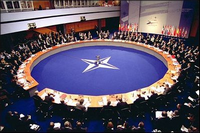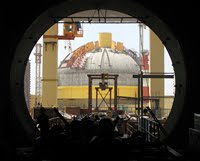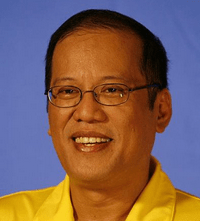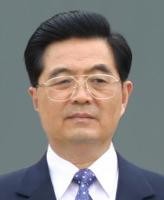The purchase and sale of carbon credits are relatively new concepts in Africa, accounting for less than three percent of the $144 billion global carbon credit trade. The system is designed to reduce carbon emissions worldwide by allowing projects that that produce low carbon emissions to sell credits to projects that want to reduce their carbon emissions under the Kyoto Protocol.
Diplomacy & Politics Archive
Free Newsletter
A steady stream of leaks suggests that, at the very least, a “soft” Greek sovereign debt default is now inevitable. And if Greece defaults, it is very likely that Portugal and Ireland might be forced to do so as well. But curiously enough, that scenario no longer seems to be as apocalyptic as it did even several weeks ago. Part of that is because the European Union, for all the flaws of its response to the debt crisis, has bought much-needed time, and is likely to buy a bit more, to allow European banks to begin cleaning up their balance […]
On June 1, Brazil approved the construction of the controversial Belo Monte dam, a hydroelectric project in the Amazon rain forest. In an email interview, Kathryn Hochstetler, the CIGI Chair of Governance in the Americas at the University of Waterloo‘s Balsillie School of International Affairs, discussed the Belo Monte dam. WPR: What is the background of the Belo Monte hydroelectric dam project, and what are the opposing arguments for and against the dam? Kathryn Hochstetler: The dam was first proposed in the 1970s, but it was set aside when World Bank funding was withdrawn in the face of widespread popular […]
It has been roughly 90 days since the Libyan intervention began, and roughly 89 that it has been criticized for being a demonstration of strategic and operational incompetence. It has also been used as proof of the demise of everything from U.S. leadership to Europe’s expeditionary capabilities to NATO’s viability as an alliance. There’s something very familiar to me about this kind of over-the-top reaction: I recognize it as my own following every U.S. intervention of the past 20 years. There is perhaps nothing more maddening than watching one’s country engage in a war that one does not believe in. […]

Chile and Brazil have both been in the news in recent weeks due to massive and controversial hydroelectric projects that have provoked heated debates and large-scale protests. Both countries are struggling with the delicate issue of how to balance the need for increased energy supplies to fuel modernizing and booming economies, with important environmental concerns in cherished parts of each country — the Amazon in Brazil and Patagonia in Chile. Like most people in emerging economies, Brazilians and Chileans are unwilling to renounce a modern lifestyle that increasingly demands access to reliable and affordable energy supplies. But the controversy surrounding […]

A constant refrain of the Democratic party’s foreign policy establishment during the administration of former President George W. Bush was that, in contrast to “unilateralist” Republicans with their cosmetic “coalitions of the willing,” Democrats were more skilled at constructing durable international partnerships that would lead to true burden-sharing. The assertion, which became almost an article of faith, served as the basis for John Kerry’s 2004 campaign promise that, if elected, he would be able to secure broader multilateral troop contributions in Iraq to relieve the burden on U.S. troops there. In the 2008 election, the same faith, combined with a […]
The CIA’s plan for a secret Persian Gulf base to launch drone attacks on suspected terrorists in Yemen has escalated the debate over just how far the United States can go with such attacks before violating accepted principles of international law. “The whole use of drones in Pakistan and Yemen raises the question of whether the United States is really in a war with a loosely organized terrorist organization whose members seem to pop up in diverse locations,” says Geoffrey Corn, a former military lawyer and World Politics Review contributor who teaches at South Texas College of Law. “People like […]

Saudi Arabia’s recent announcement that it plans to build 16 large reactors by 2030 may have seemed incongruous in the wake of the Fukushima crisis. In fact, it actually buttresses the Middle East’s current trajectory as a major future market for nuclear energy and underscores the continuing attractiveness of nuclear power for industrially underdeveloped economies. Moreover, given the sheer size of the plan — well more than $100 billion will go to the reactors alone — Riyadh is in a position to set terms and use the project to enhance new partnerships while balancing old ones. The kingdom’s interest in […]
Protestors opposed to austerity measures imposed by the Spanish government have been camping out in Madrid for the past few weeks. In an email interview, José M. Magone, a professor at the Berlin School of Economics and Law and the author of “Contemporary Spanish Politics,” discussed the protests in Spain. WPR: What is the driving force behind the current protests in Spain? José M. Magone: The driving force behind the protests is a general feeling of outrage on the part of the younger generation, as well as other groups that are suffering under the Spanish government’s harsh austerity program. It […]

After almost two years of intensive lobbying by New Delhi, the Nuclear Suppliers Group (NSG) — the global watchdog of the sensitive nuclear trade — is finally considering India for membership. The issue has been incorporated as a special agenda item for discussion in the NSG plenary meeting scheduled for late June. The major member states, including the U.S., Germany, France and Britain, have all indicated their support for India’s candidacy. India’s quest for NSG membership raises serious questions for the nuclear nonproliferation regime, however. According to criteria set by the NSG, only signatories to the Nuclear Non-Proliferation Treaty (NPT) […]

When Lebanon’s new prime minister announced he had finally formed a new cabinet after five months of negotiations, the Lebanese people seemed startled by the abruptness of the news. The announcement by Prime Minister Najib Mikati heralded a new era for Lebanon: For the first time, the militant Shiite group Hezbollah — designated as a terrorist organization by the U.S. and a number of Western nations — will hold the majority of ministries in the Lebanese cabinet. The exact timing of the announcement points to the powerful forces at play in Lebanon, suggesting that with the new government in place, […]

Since taking office in June 2010, Philippine President Benigno Aquino has pushed through reforms aimed at improving the professionalism of the Armed Forces of the Philippines (AFP). The drive, however, remains restricted to certain aspects of civil-military relations, and as such is bound to have only limited impact. In general, key prerequisites of democratic oversight of the security sector include civilian control over the political sphere of military issues, such as internal security policy, budgets, reform processes and the upholding of human rights. The military, on the other hand, is expected to enjoy a degree of autonomy in the professional […]

Last Sunday’s polls in Turkey gave incumbent Prime Minister Recep Tayyip Erdogan a widely expected victory. His Justice and Development Party (AKP) obtained 50 percent of the vote, winning Erdogan an unprecedented third mandate and increasing the party’s share of votes by more than 3 percent over its already triumphal victory in 2007. A closer look shows that all the major parties actually managed to increase the number of votes they received. That suggests that many Turkish electors ultimately opted for a “strategic vote,” abandoning smaller political groups and their hopeless struggle to overcome the 10-percent threshold to be seated […]

The Obama administration appears to be in the throes of yet another debate about the long-term U.S. commitment to Afghanistan. Inside the administration, officials are weighing not only the material costs of remaining in Afghanistan, but also the political and bureaucratic implications of continuing the war. Undoubtedly, some are asking the question, “What would a withdrawal from Afghanistan say about the United States?” Some might answer that a withdrawal would embolden America’s enemies and indicate that the United States is both weak and unwilling to stand behind its friends. The late, esteemed George Kennan suggested another interpretation of such a […]
Kenya and Ethiopia recently agreed to boost security along their shared border following deadly cross-border raids in May. In an email interview, Edmond J. Keller, chair of the Department of Political Science at the University of California, Los Angeles,* discussed Kenya-Ethiopia border security. WPR: What are the main areas of concern with regard to the Ethiopia-Kenya border? Edmond J. Keller: The border between Ethiopia and Kenya is more than 500 miles long and rests in very remote and underdeveloped parts of both countries. On the Kenya side, elements of the Turkana cattle herders are the population; on the Ethiopia side, […]
Despite Turkey’s stalled European Union accession bid and a seeming inability to influence the turmoil gripping the Middle East, Prime Minister Tayyip Erdogan’s Justice and Development Party sailed to its third consecutive parliamentary election victory last weekend by touting its success in raising the country’s profile on the world stage. According to Yigal Schleifer, an independent journalist and World Politics Review contributor, the party — known by its Turkish acronym, AKP — effectively portrayed itself “as the main driver of democratization in Turkey.” “The economy has been growing steadily, and Turkey’s profile on the world stage and in the region […]

The meeting last week between China’s ambassador to Qatar and the head of Libya’s opposition movement signaled a proactive new phase in China’s engagement with Libya’s future. The move is a further step away from China’s traditional insistence on not interfering in the internal affairs of other nations and privileging intergovernmental relations. Yet there are reminders of a not-too-distant past when Maoist China had extensive contacts with rebels around the globe. Now, China is testing out new responses and possibilities for conflict mediation while also looking to secure its own interests, whatever the outcome in Libya. China showed considerable flexibility […]
